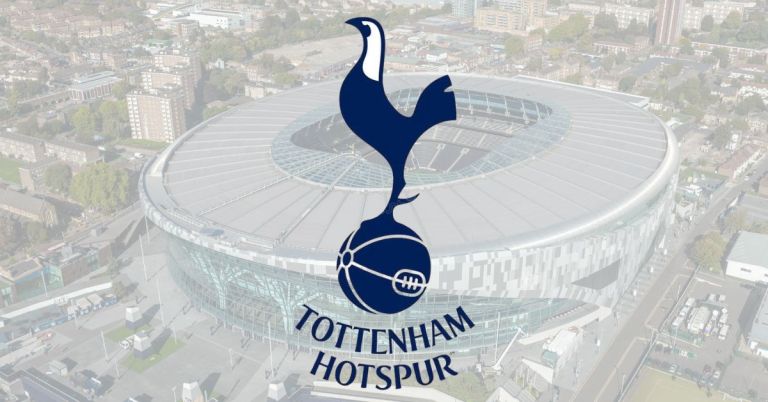In English football circles, there is a topic that fans keep bringing up: Is Tottenham Hotspur a true Premier League powerhouse? There is no standard answer to this question, but we can look at it from multiple angles.
Tottenham is a team with a long history, and their new stadium cost a staggering 1.2 billion pounds, making it one of the most modern stadiums in the world. However, this luxurious stadium has yet to host a Premier League championship trophy. They once scored 86 points in the 2016-17 season, setting the record for the highest points total by a runner-up in Premier League history, and they have also reached the Champions League final, appearing to be just one step away from “elite” status.

But from another perspective, Tottenham Hotspur always seem to falter at crucial moments, such as poor performance in key matches, limited financial investment, and a long spell without a trophy… All of this makes people question whether they really deserve the title of “big club.”
Let’s take a step-by-step look at whether Tottenham Hotspur really deserve to be called a Premier League big club.
1. The silent reality in the trophy cabinet
Walking into the trophy display area of Tottenham’s new stadium, the most prominent spot is occupied by two old-fashioned First Division (the predecessor of the top-tier league) championship trophies, won in the 1950-51 and 1960-61 seasons. These trophies are already quite old, and the dust on the glass cases indicates they haven’t been updated in a long time.In the Premier League era, Tottenham has won some cup competitions, such as the League Cup and the Community Shield, but these are not the most important league titles.
Let’s take a look at the number of titles won by the six traditional Premier League giants:
These numbers clearly show us one fact: although Tottenham are not weak, they have never won the Premier League title. In the 2016-17 season, they scored 86 points, which is the highest score ever recorded by a runner-up in the Premier League, but they still failed to win the title.
This has led many to believe that Tottenham are just one step away from success, but that one step is proving too much for them.
2. The hope and disappointment of the Champions League final
When talking about the closest Tottenham have come to becoming a “big club,” many people think of the 2019 Champions League final.That year, they faced Ajax in the semifinals and came from behind to win in the final moments, a victory that made the whole world remember this team from North London.
But in the final, they lost 2-0 to Liverpool and missed out on the chance to be crowned European champions. After the match, an article in the British newspaper The Guardian wrote: “Tottenham proved that miracles can take you to the final, but they also showed you that the standards of a big club are not just about that.”
After that game, a lot changed for Tottenham:
In contrast, Chelsea completely joined the ranks of the elite after winning the Champions League in 2012. Tottenham’s failure this time around only made them look more awkward.
3. Five criteria for measuring a powerhouse
We can judge whether a team is a powerhouse from five aspects. Let’s take a look at how Tottenham performed in these five aspects.
1. Do they have stable competitiveness?
Tottenham has indeed performed well in the past few years, such as finishing in the top four of the Premier League for four consecutive years (2015 to 2019), which is a new record in the team’s history.However, compared to other truly great clubs, this stability is not enough.
Manchester United enjoyed a long period of dominance under Sir Alex Ferguson; Liverpool has been performing consistently well in the Champions League in recent years; and Manchester City has established its own dynasty. Tottenham, on the other hand, is more like the tide, sometimes high, sometimes low, lacking consistency.
2. Do they have the “championship gene”?
The “championship gene” refers to a team’s ability to win games at crucial moments. Since winning the League Cup in 2008, Tottenham Hotspur has not won any major trophies for many years. During this period, there have been 148 champions in English football, but Tottenham Hotspur has not won a single one.
In contrast, Leicester City won the Premier League title in 2016 as an underdog, proving that even non-traditional powerhouses can create miracles.
3. What is their financial situation?
Tottenham’s revenue ranks among the top ten globally, reaching 618 million euros. However, due to the financial pressure from building a new stadium, they have been relatively conservative in their spending in the transfer market. For example, in the summer of 2023, they only spent 12 million pounds in net transfers, even less than some teams that recently promoted to the Premier League.
This frugal approach stands in stark contrast to Manchester City’s lavish spending.
4. How good is the youth academy?
Tottenham also has some famous youth academy products, such as Bale and Kane. However, the problem is that once these young players become famous, they are often poached by other big clubs. This is different from Manchester United’s “Class of ’92” or Barcelona’s La Masia, where most of the stars who come through the academy stay at their parent club and become core players.
Tottenham is more like a talent factory for other big clubs rather than a true talent base.
5. Do they have enough global influence?
Tottenham has around 19 million social media followers, far below Manchester United’s 60 million. Their jersey sponsorship fee is only £45 million, less than half of Manchester United’s.
If you ask a few Premier League fans on the streets of Beijing, less than 30% of them can name three Tottenham players. This also shows that they still need to improve their global recognition.
4. Why is Tottenham always “just short of the mark”?
In fact, Tottenham’s predicament reflects some of the realities of modern football.
1. Disadvantageous geographical location
Tottenham is located in London, but in this city, they have two powerful neighbors—Arsenal and Chelsea. Especially Chelsea, which rose rapidly after being taken over by owner Roman Abramovich and became a world-class powerhouse.
In comparison, Tottenham seems a bit marginalized. Even though they have decent results, they struggle to truly capture widespread attention.
2. Unstable team-building philosophy
Tottenham Hotspur has often wavered in its team-building philosophy. At times, they have prioritized youth development, such as during the Pochettino era; at other times, they have pursued players who can deliver immediate results, such as under Conte’s management. This constant switching between approaches has made it difficult for them to establish a mature team-building philosophy.
In contrast, managers like Klopp at Liverpool or Arteta at Arsenal have a clear vision for the team’s development, which is a key factor in their ability to maintain stability.
3. Prone to choking in crucial matches
Over the past five years, Tottenham’s win rate against the other five Premier League giants has been only 28%. In the 2022-23 season, they were almost double-defeated by all of their BIG6 opponents.
In contrast, the Manchester derbies and the Red Devils’ derbies are always full of suspense and passion. Tottenham, however, rarely play classic matches in such games.
5. What is the new definition of a “big club”?
People’s understanding of what constitutes a “big club” is also changing.
1. The rise of new forces
For example, after Newcastle was acquired by a Saudi Arabian consortium, their financial resources have significantly increased, posing a direct threat to Tottenham. In the 2023-24 transfer market net spending rankings, Tottenham has already fallen out of the top ten.
This means that if Tottenham Hotspur cannot achieve breakthrough results soon, their status may further decline.
2. The impact of the European Super League incident
Although Tottenham Hotspur was initially listed among the founding clubs of the European Super League, the plan ultimately failed. This also exposed an issue: Tottenham Hotspur is not a core player among elite clubs but more of a “supporting role.”
3. The influence of the digital age
Tottenham has performed well in new metrics such as TikTok likes and the number of esports teams. However, whether this can be converted into true elite status remains to be seen.
6. Perhaps Tottenham can forge a new path
Rather than fixating on whether Tottenham is an elite club, perhaps we should adopt a different perspective.
1. They are “elite club reserves”
Tottenham has a top-tier stadium, stable Champions League qualification, and the ability to develop star players. With one more major championship, they could officially join the ranks of the elite.
2. They challenge traditional evaluation standards
Although Tottenham has no championships, it has long maintained its status as a strong team. This “strong but without a championship” approach breaks the traditional “championship-only” mindset.
3. They may be a “transitional powerhouse”
In a new era of football, the status of traditional powerhouses is no longer so secure. Tottenham Hotspur may be playing an intermediate role, connecting the powerhouses with the emerging forces.
Conclusion: Tottenham Hotspur’s charm lies in “always being just a little short”
When Harry Kane looked back at the Tottenham Hotspur crest for the last time before moving to Bayern Munich; when Son Heung-min took over the captain’s armband but still couldn’t break the “title curse”… all of this tells us that Tottenham’s story has been repeating the same theme: they are always just a step away from success.
But perhaps it is precisely this “always just a bit short” feeling that makes Tottenham special. They are neither a powerhouse nor an underdog, but a stubborn team that persists in pursuing their dreams on the Premier League stage in their own way.
Just as John Lennon sang in “Imagine”: “You may say I’m a dreamer, but I’m not the only one.” On the nights in North London, Tottenham fans’ songs still ring out, even if the trophy cabinet remains empty.
Whether Tottenham is a “big club” or not may not be important. Because what matters more than labels is that they have always stayed true to their beliefs and passion.

